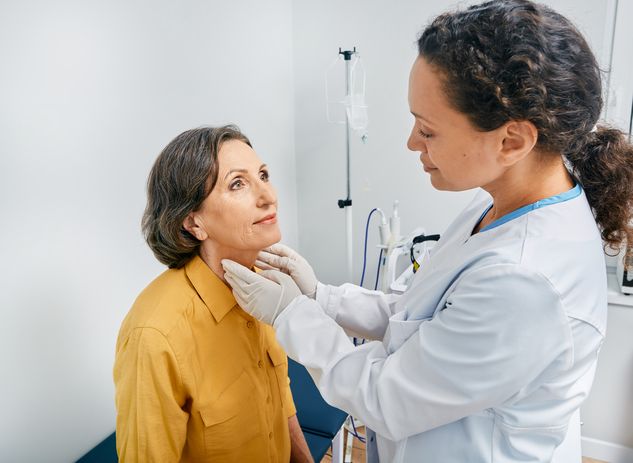Hypothyroidism vs Hyperthyroidism
Hypothyroidism means your thyroid gland is not making enough thyroid hormone. It is very common; most people know someone who is taking extra thyroid hormone pills (levothyroxine or Synthroid). Symptoms are fatigue, weakness, feeling cold when others are warm, depression, constipation, puffy face, dry hair and skin, hair loss, weight gain, irritability, and abnormal periods to name a few.
It is treated by supplementing hormone with tablets as noted above. Your doctor will monitor for correct dosage by measuring. TSH (thyroid stimulating hormone) levels in the blood. These levels are checked 4-6 weeks after dosage is started or changed. TSH will be high in patients with hypothyroidism.


Hyperthyroidism
Hyperthyroidism is too much thyroid hormone. It is caused by Graves’ disease, toxic goiter (the whole gland is hyperactive), a toxic nodule (single lumps in the thyroid releasing too much hormone), and thyroiditis (inflammation of the gland causing “leakage” of extra hormone).
Symptoms include feeling hot while others are cool, weight loss, fatigue, anxiety, fever, diarrhea, frequent bowel movements, hair loss, tremor, staring gaze, fast heart rate or palpitations, and light periods. TSH will be low in patients with hyperthyroidism. It is treated with medications that decrease thyroid hormone secretion or decrease its activity in the body. Radioactive iodine can help, and sometimes people require surgery.
Radio frequency ablation of the toxic nodule is now an option. This is an outpatient procedure done in the clinic under local anesthesia.
Request an Appointment
Same and next day appointments available
